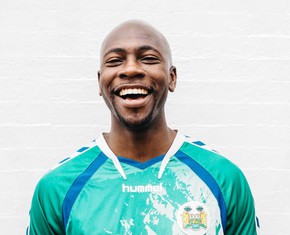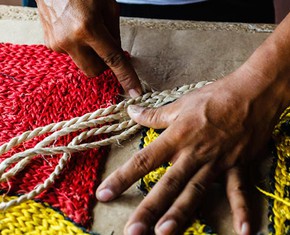The views expressed in our content reflect individual perspectives and do not represent the authoritative views of the Baha'i Faith.
Many people believe that the purpose of a legitimate legal system involves seeking vengeance for crimes committed against individuals within that system.
But revenge and retaliation are not justice—instead, their motivation usually comes from rage, hatred, or spite. You do something bad to me, and I do something worse to you. Vengeance is an emotional protest, a payback with the intent to do harm. Even more harmful than the original criminal act, vengeance creates a vicious cycle of retaliation, exacerbating and extending the original crime.
The Baha’i teachings prohibit vengeance. Instead, they ask for fairness and justice:
If someone wrongs, injures and assaults another, and the latter retaliates in kind, it constitutes revenge and is blameworthy. …
But the body politic has the right to preserve and protect. It holds no grudge and harbours no enmity towards the murderer, but chooses to imprison or punish him solely to ensure the protection of others. The purpose is not revenge but a punishment through which the body politic is protected. … The body politic is not prompted by ill will in meting out its punishment; it acts without prejudice and does not seek to gratify a sense of vengeance. – Abdu’l-Baha, Some Answered Questions, newly revised edition, pp. 310-311.
However, on the other side of the equation, when the community ignores its responsibility to punish the criminal, it neglects its obligation to protect the rights of humanity. Even for the community, vengeance is abhorrent—but for the community to fail to punish the criminal—thereby demonstrating a supposed sense of mercy—means it deprives others in the community of the right to safety and security.
More importantly, however, the Baha’i teachings recommend penology as most effective when wielded within a greater process of socialization and education. Abdu’l-Baha said that if individuals are properly educated and the society spiritually-based, then one’s desire not to be regarded as a criminal would become the greatest deterrent to crime:
… if the masses were educated so that knowledge and learning increased day by day, understanding was broadened, perceptions were refined, morals were rectified and manners reformed—in a word, that progress was made with respect to every degree of perfection—then the occurrence of crime would subside. – Ibid., p. 313.
… that which is essential is to so educate the masses that no crimes will be committed in the first place; for a people can be so educated as to shrink entirely from any crime, and indeed regard the crime itself as the greatest chastisement and the most grievous torment and punishment. – Ibid., pp. 309-310.
Many contemporary societies—even some considered “enlightened”— have resorted to mass incarceration against dissidents, people of color and other oppressed groups. The Baha’i teachings abhor this kind of incarceration for the sake of oppression or revenge, and even say that a sole focus on punishment through the constant building of prisons has a deleterious and destructive effect on the moral basis of civilization itself:
The body politic is engaged day and night in devising penal laws, and in providing for ways and means of punishment. It builds prisons, acquires chains and fetters, and ordains places of exile and banishment, of torment and hardship, seeking thereby to reform the criminal, whereas in reality this only brings about the degradation of morals and the subversion of character. The body politic should instead strive night and day, bending every effort to ensure that souls are properly educated, that they progress day by day, that they advance in science and learning, that they acquire praiseworthy virtues and laudable manners, and that they forsake violent behaviour, so that crimes might never occur. At the present time the contrary prevails: The body politic is ever seeking to strengthen penal laws and securing means of punishment, instruments of death and chastisement, and places of imprisonment and exile, and then waiting for crimes to be committed. This has a most detrimental effect. – Ibid., pp. 312-313.
The concept of penology implied in Baha’u’llah’s Most Holy Book thus recognizes this same principle by envisioning a future society in which all people feel loved, appreciated, and cared for—and in which rebellion against the community would be tantamount to rebellion against one’s own family, and, by extension, against one’s own self-interest.
















Comments
Sign in or create an account
Continue with Googleor